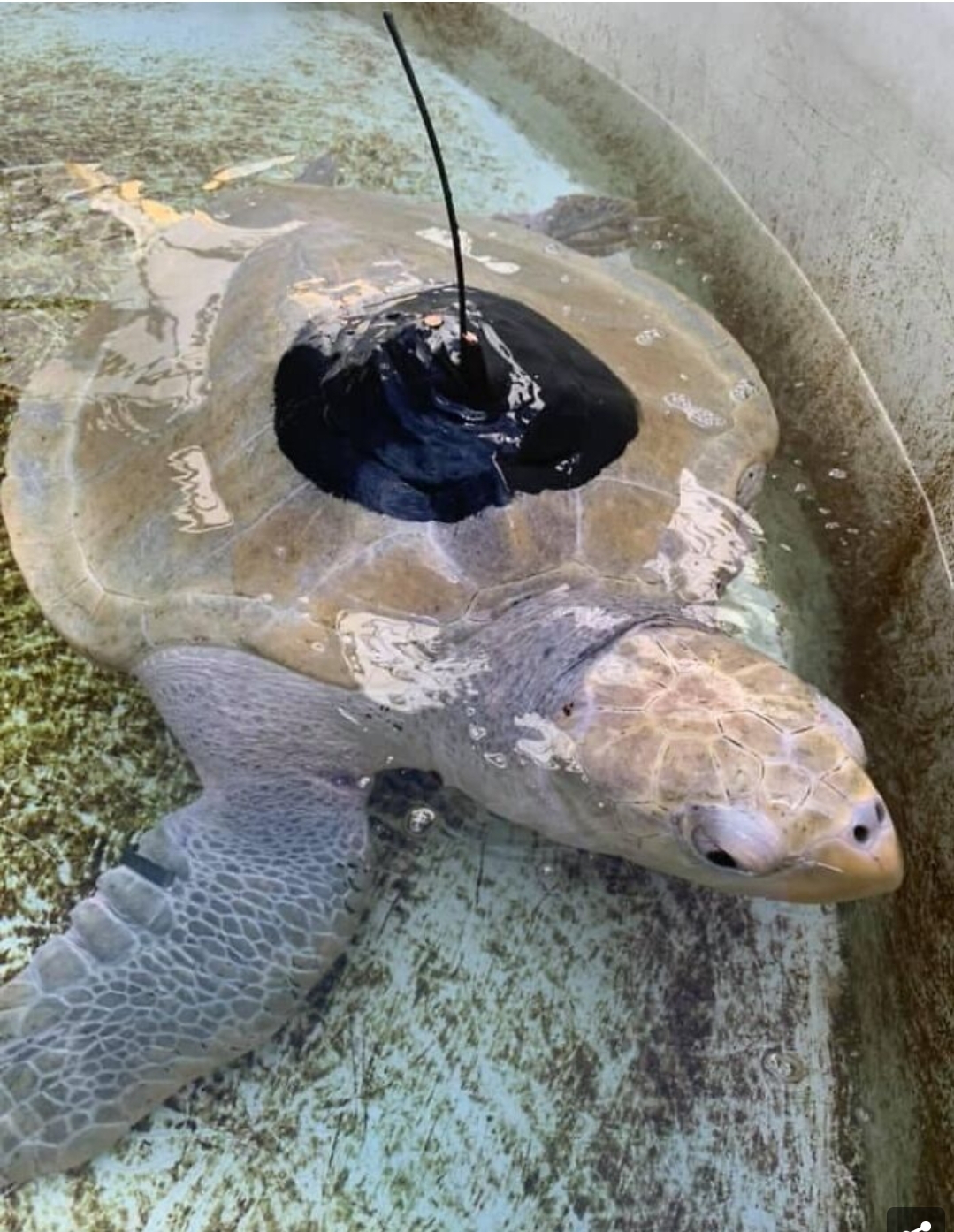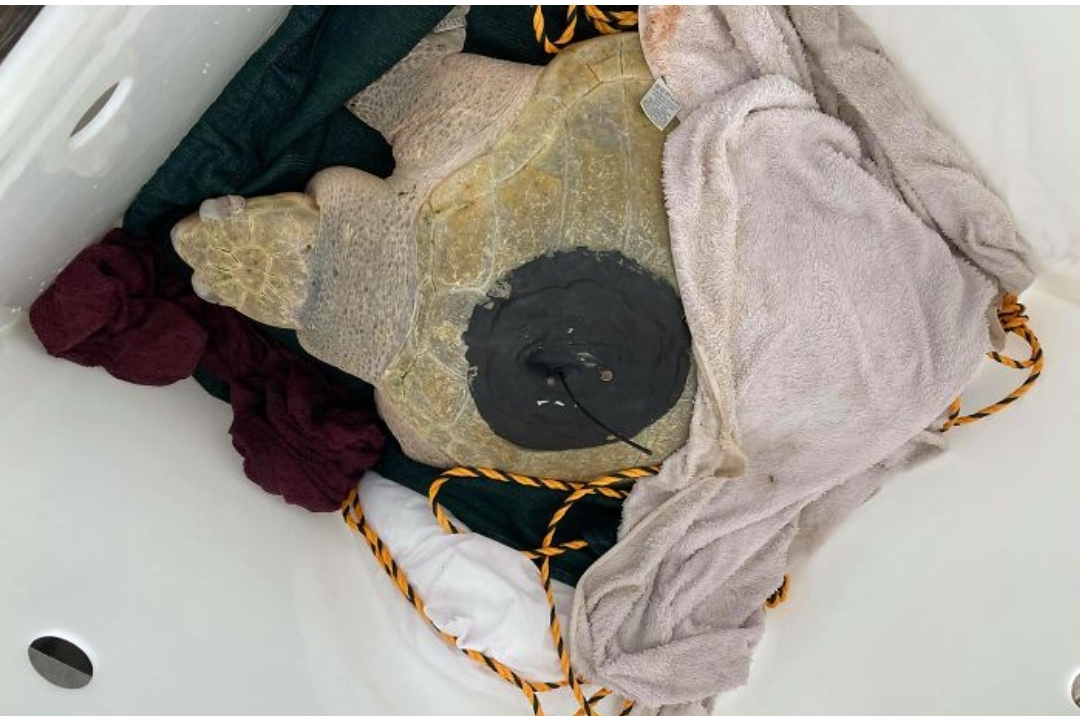An olive ridley sea turtle was found by a group of animal rescue volunteers among discarded fishing nets back in 2015. They immediately brought in the turtle and found both of his flippers severely injured.
The volunteers from Cairns Turtle Rehabilitation Centre (CTRC) is a non-profit voluntary organization in Australia that is dedicated to rehabilitating sick and injured turtles. The group found the turtle, which they later named Lou.

“Lou had his front left flipper missing, worn off from trying to escape from the net,” Jennifer Gilberr, co-founder of CTRC, told Bored Panda in an imterview. “He was picked up by the rangers who drove him down to Weipa and he was transported to Cairns via Qantas Link who sponsored his flight.”

Dr. Rod Gilbert examined Lou at the Marlin Coast Veterinary Hospital, and found his back right flipper was badly damaged and could not be saved.
“The decision was to amputate that flipper which left him with only 2 of them, luckily opposing,” Gilbert recalled. “There was always hope he would recover and be returned back to the wild where he belongs. Being an adult male olive ridley, it was important that he went back.”

Lou was definitely a fighter. Although he struggled at first and recovery took long, he was still able to go back to how he was.
“He could use his long 15 cm (almost 6 inches) tail as his other rudder. He struggled for a long period of time to get his balance, but after a lengthy rehabilitation, he was diving, eating at the bottom of the tank, and moving at speed if required,” said Gilbert.
Lou was then discharged and was flown back to Weipa. “We drove him up to Pennefather Beach Cape York where he was released in the beautiful clear water,” Gilbert said. “This area was deemed safe for him to orientate back into the wild.”
Olive ridley turtles are protected by laws, but poachers still hunt their eggs for their meat, while the adults are hunted for their meat and skin.
Even though the olive ridley is widely considered the most abundant of the marine turtles, they are still in trouble as their population, particularly in the western Atlantic, continues to decline.






